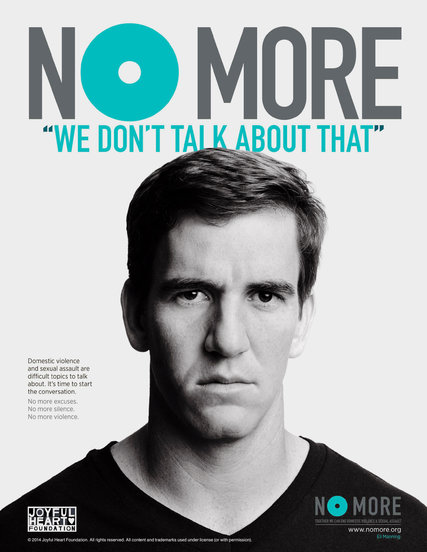The Chicago restaurant Kuma’s Corner is making a few headlines this month with its gourmet hamburger special honoring the band Ghost B.C. The burger features braised goat shoulder, ghost aioli, a red wine reduction sauce and an unconsecrated wafer for $17. NPR’s Two Way blog polls readers: “Is this offensive, or not?” and an unsurprising majority vote that it is not offensive. At least, I’m unsurprised, for reasons I’ll get to below.
I do, in fact, find it offensive – but not entirely for the reasons Ghost or the restaurant’s proprietors think, nor wholly for the reasons that Catholic Foodie blogger Jeff Young tells the Chicago Tribune:
“It’s not the Eucharist, but it’s still symbolic,” Young said. “For us as Catholics, the Eucharist is more than a symbol, it’s a sacrament. At the same time, it doesn’t mean that symbols aren’t important. … It is a mockery of something that is holy. The same thing could be said of the band itself.”
The band uses religious imagery – cardinal-like robes and other religious imagery alongside skull makeup – in its stagework. In that, it’s not much different from others – Madonna, say – who have directly used religious imagery in ironic and/or deliberately offensive ways in their artwork.
Young is right: the symbols are important and they mean something. Indeed, in the past people have used these symbols to make all manner of points. To use symbols in these ways can be a mockery; it can also be a means of protest or a cry against church politics or in the case of the famous Piss Christ statue, a deriding of the cheap commercialization of religious objects. PZ Myers famously threw a consecrated communion wafer in the trash, along with some pages of the Qu’ran, a banana peel and some coffee grounds. His message: nothing should be held sacred and question everything.
That’s offense in a particular kind of way, offense that recognizes the others might well be offended. It’s offense that recognizes, though in a negative sense, that the object means something and it’s meant to draw offense. But it’s also meant to cause reflection, conversation, some soul-searching, perhaps some conversion.
What happens, though, when offense is apparently unintended? When there is no particular meaning assigned to the object in question? The owner of Kuma is quoted as saying:
“It’s not a commentary on the state of religion or anything like that,” Tobias said. “It’s literally, ‘We like this band; we think what they do is cool.'”
Followers of the band’s FB site note a similar kind of “this shouldn’t be offensive”:
Ghost is a band and they put on a show. You can get out of it whatever you want.
And:
The things some people decide to get upset over…a hamburger named after a heavy metal band.
In many ways, that’s tougher to deal with than other examples of uses of religious objects: the sheer lack of awareness that someone might be offended – the shoulders-shrugging “You’re offended? See if I care….and you shouldn’t be offended anyway” sensibility.
There are many arguments about our era that could account for this sensibility. Charles Taylor mentions, for example, the disenchantment of our age, the way in which we shifted from “a society in which it was virtually impossible not to believe in God to one in which faith, even for the staunchest believer, is one human possibility among others.” (Secular Age, 3) Vince Miller argues that the commercialization of our age means that religious symbols get appropriated in consumer-oriented ways.
I want to highlight still another: the pitfalls of individualism and a focus on social libertarianism that emphasizes the unmitigated good of individual choices above all else. The “I’m Okay, You’re Okay” relativism that my students revel in – that seems so much to be tolerance and kindness to them because “everyone can believe what they want” is only a short step away from “believe what you want but what I’m doing shouldn’t matter at all to you. Or if it DOES matter to you, especially to the extent that you think I’m wrong, then you NEED to be tolerant too, exactly in the way that I require you to be tolerant.”
It’s a “tolerance” that actually ends up being intolerant. It forms people – coerces them, even – into habits of “whatever” – habits that enable people not to have to engage with each other’s differences and that force everyone always to be apologizing for their differences. I think it also forms a societal sensibility that arguments can’t result in compromise because if they result in compromise, I both don’t have the space to be really myself AND YOU haven’t been tolerant enough. (Vaguely reminiscent of a recent government shutdown, anyone?)
We should all be worried about this – and yes, offended. For example, we should care if we think that race, sexuality, economic distinctions, disability, age do, in fact carry weight.
Unmitigated tolerance is not an unmitigated good. Myself? I’d much prefer to be formed into the virtue of kindness, kindness that encourages all of us to engage each other for real – to see each other as worthy enough of having arguments and not to see each other as “whatever”. I’d like to see people embody the kind of the kindness that cares about others – the kind of kindness it’d take for Kuma and Ghost BC to speak truthfully about the fact that our world is not full of “just objects” that have no meaning.





